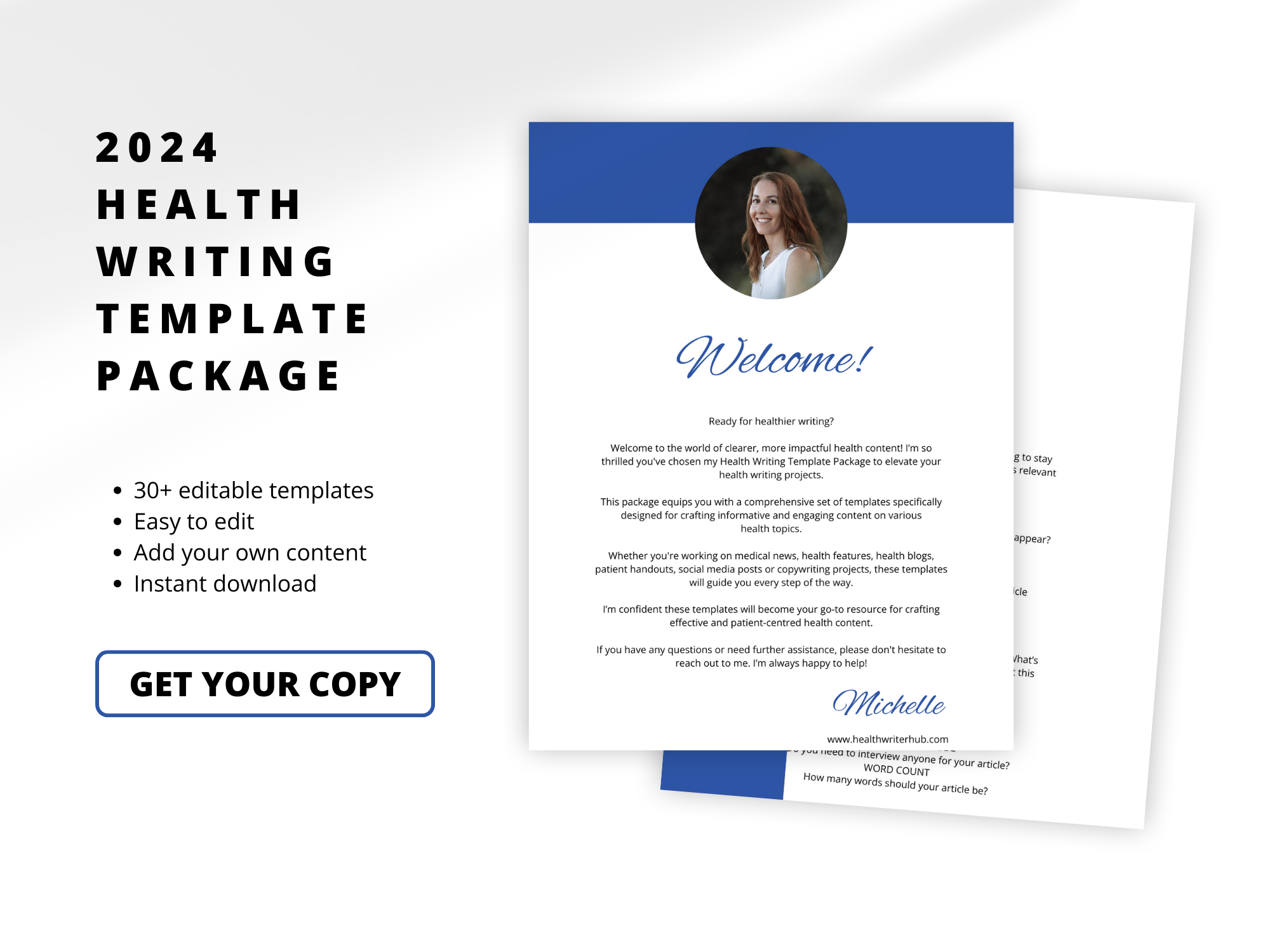 If you don’t know how to assess your writing or rate yourself because you can’t be objective, you’re not alone. Many writers struggle to work out if their writing is of a standard that clients and editors would be happy to publish.
If you don’t know how to assess your writing or rate yourself because you can’t be objective, you’re not alone. Many writers struggle to work out if their writing is of a standard that clients and editors would be happy to publish.
It’s the nature of our work. We perform our research, write our draft, do our medical edit, proofread and submit – all as a party of one.
There’s no denying that assessing your writing is a daunting, confusing task.
Are you overestimating your abilities, or are you underestimating your strengths?
You might be wondering if your writing is ‘publishable’. Or, maybe you’re feeling confused about where, if anywhere, you’re going ‘wrong’.
Luckily, there are quite a few ways to evaluate your skills so you can develop your writing abilities with confidence.
Here are 20 strategies to get you started.
1. Ask someone to read your writing
It’s time to let go of your hesitations, embrace your fears and leave your ego behind.
If you’re going to be a professional writer, people are going to read your work – and, you need to get comfortable with sharing your writing.
Just like you can’t run a secret freelance medical writing business, you can’t be a secret writer – so, find someone you trust who is happy to read your writing and offer honest feedback.
2. Study best-practice examples
One of the best ways to improve your writing is to read high-quality writing by leading publications.
That’s why reading best-practice examples gives you a benchmark as well as a standard to aspire to.
Identify the industry-leading clients, brands and businesses in your niche, and look at the writing they publish.
Reading reputable papers, like the New York Times, is also a useful habit to develop.
As you read, ask yourself if you feel you could write similar content.
Consider the steps you might need to take to attain that level of writing skill.
3. Assess your writing by reading aloud
Reading aloud is an age-old writing tip for a good reason.
When you read your work out loud, you’ll often get a different insight into your content. Plus, reading aloud helps you to spot mistakes and odd-sounding phrasing.
4. Study your old writing for clues
Review articles, projects and emails you’ve written in the past.
See if you can spot any recurring mistakes or bad habits.
Does anything jump out at you? Bad habits are easier to spot when you’ve had some time away from your first draft.
Look for both strengths and weaknesses in your writing. Consciously and methodically work on improving your weaknesses.
5. Use an online readability checker
My favourite readability tools are Grammarly and Hemingway – both have both free and paid options.
These readability tools have unique assessment methods, too – so using more than one tool for each project is a great way to pick up on a range of errors.
6. Take a writing course that includes personalised feedback
In my Introduction to Health Writing course, I give students personalised feedback on every writing task they submit.
My students say this feedback is the best part of my courses because the practical pointers enhance the weekly learnings and help them identify their strengths and weaknesses.
7. Consider courses outside of your focus area, like creative writing or fiction writing
Creative writing, travel writing and business writing courses will give you exposure to different writing methods which is a great thing.
These courses can often push you outside of your comfort zone, too.
8. To assess your writing, ask yourself if your writing is useful
The best writing is also the most useful. Ask yourself:
- How does your article or blog help your readers?
- Is your content solving a problem?
- Are you writing about an original, helpful topic?
- Have you crafted a socially responsible message?
Great writing is not just about perfect grammar and structure; the content needs to be useful – especially in the health industry. Other factors that make your writing useful include specific writing strategies like effective subheadings and a socially responsible message.
9. To assess your writing, check your relevant guidelines
To assess your writing, you’re not only looking for grammatical errors.
As a health writer, you always need to ensure your work meets local and international guidelines – including advertising and government regulations.
That’s why it can help to include a dedicated compliance check as part of your overall editing process.
10. Check your evidence
If you’re writing about research, it’s important to make sure you have accurately represented the findings.
Don’t just write ‘research suggests’ and call it a day. For more on writing about research, here are 16 ways to add more detail to your evidence-based writing.
11. Track your progress
Compare your writing to examples from 6-12 months ago and discover how you’ve improved over time.
Use that knowledge to motivate and inspire you to achieve even more in the coming 6-12 months.
2024 Health Writing Template Package
Save time and create better health content, faster with my new and improved health writing templates!

- Medical News Article Templates
- Health Feature Article Templates
- Health Blog Post Templates
- Article Pitching Template
- Health Blog Post Template
- Health Topic Template
- Medication Topic Template
- Procedures and Treatments Template
- Social Media Templates
- Health Copywriting Project Templates
- Medical Writer CV Templates
Get instant access to all 30+ templates in the package. Download the editable templates and keep them forever!
12. Learn from your mistakes
Keep a note of any errors, mistakes or content your clients or editors have amended. Maybe you had a long sentence that was edited into bullet points, for example.
Learn how and why your content was changed or classed as an error.
Also, if you aren’t getting feedback on your work, don’t be afraid to ask for it.
13. Keep a diary
Diarising your thoughts isn’t only therapeutic – it also helps you to identify your struggles.
Keep a specific writing skills diary, and reflect on what you find most challenging about the writing process.
Do you struggle to get started, or write a paragraph?
Do you find it hard to structure your work, or edit and proofread your final draft?
Taking the time to re-read your diary entries and reflect on your challenges will ultimately help you to assess your writing.
14. Start a swipe file
A swipe file is a collection of work you find inspiring and useful.
Your swipe file shouldn’t only contain health writing-related content. Your file could also contain ads, articles, blogs, poetry and copy about any topic.
Above all, what’s important is that the content in your swipe file is high quality and transferable.
So, remember to write down what you like about every item you put in your swipe file, too.
15. Read often to assess your writing
Regular reading is the number one way to become a better writer.
Reading opens your mind to new voices and styles of writing. You’ll learn how to become a better writer without even realising you’re learning!
And, another useful way to assess your writing skills is to compare your writing style to the author’s style and tone of voice and look for similarities and differences.
Reading also helps you improve your sentence structure, spelling, punctuation and vocabulary.
16. Write for fun
When writing becomes a chore or a pain, it’s time to stop and refocus.
Of course, writing won’t always be fun – especially when it’s your day job. But, there are ways to make your writing practice more enjoyable.
If you have writer’s block, don’t write what you have to write – just write what you want to write. Write stories, letters, poetry, lyrics.
Finally, write about what makes you happy, in the format that comes most naturally to you.
17. Assess your writing by completing writing exercises
Assess your writing by completing short writing exercises and reviewing how easy or difficult you find those tasks.
Write short paragraphs and even short, snappy sentences.
Also, check out my posts on three simple health writing exercises and short daily writer exercises to get you started.
18. Set goals
Approach your writing skill development like you would any other project, and set goals and timelines.
So, set short-term goals for one, three and six months.
That being said, don’t just consider the writing skills you need to improve. Also think about why you need to improve a particular skill.
19. Take an online writing skills test
If English is your second language, an online test can help to give you an indication of the particular grammar and sentence structure issues you’re struggling with.
20. Give yourself time to learn how to assess your writing
Improved writing will not happen overnight, but it will happen. You will develop your skills with a concerted effort, practice and patience.
Unfortunately, not many of us are natural writers. Sure, a lucky few are – but, for the rest of us, becoming a good writer takes a lot of time and effort.
Writing is a skill. And, like any skill – sport, music, art – you’ll reap the rewards if you put in the training, practice and preparation.
You will learn how to assess your writing style and work out if your content is of a good standard with time, practice and determination.
Finally, good luck – and, get writing!
